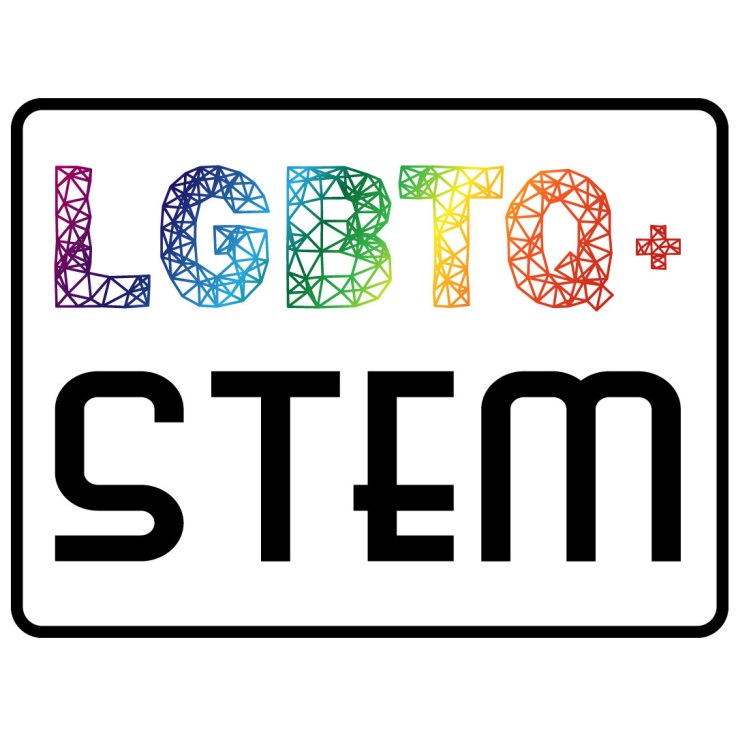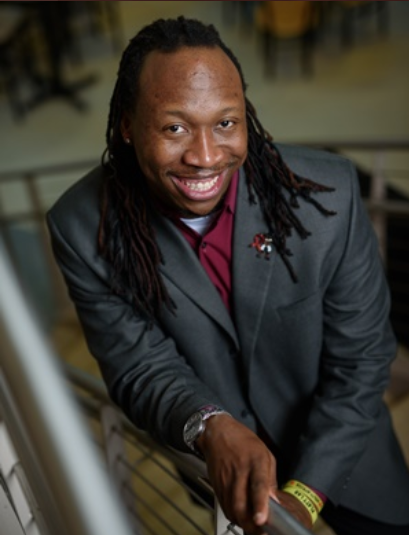 The 7th LGBTQ+ STEMinar was organized by STEM Village and STEM Equals and co-hosted at the University of Strathclyde and the University of Glasgow on 14 January 2022. Follow along on twitter using the hashtag #LGBTQSTEMinar22. The event was a ONLINE ONLY event.
The 7th LGBTQ+ STEMinar was organized by STEM Village and STEM Equals and co-hosted at the University of Strathclyde and the University of Glasgow on 14 January 2022. Follow along on twitter using the hashtag #LGBTQSTEMinar22. The event was a ONLINE ONLY event.
The STEMinar is designed for people who work or study in STEM subjects (Science, Technology, Engineering, Mathematics) and are LGBTQ+. We aim to use the day to showcase work from diverse fields and to encourage collaborations between different departments, universities, companies and disciplines. To keep up to date on developments, join our mailing list.
Key Dates
Monday 2 August: Abstract submission NOW OPENMonday 13 September: Decision about whether the event will be online only or hybridMonday 13 September: Registration opensMonday 20 September: Abstract submission deadlineMonday 27 September: Abstract deadline EXTENDEDMonday 15 November: Abstract decisions sharedMonday 22 November: Programme published onlineWednesday 8 December: Online workshop for speakers selected to give oral presentationsFriday 7 January 2022: Registration closesFriday 7 January: (Optional) Online Rehearsal/Run Through/Support for speakers- Friday 14 January 2022: 7th LGBTQ+ STEMinar
Abstract submission
The deadline to submit is Monday 20th September Monday 27 September.
https://forms.gle/k1cAayvFqa8MXXPk6
Presentation formats:
- Poster: Poster presentations can be displayed in person, online, or both.
- Oral presentation: 10 minutes with 3 minutes for questions. Oral presentations can be given in person, live online, or pre-recorded.
We have a conference Code of Conduct.
Conference Programme
The LGBTQ+ STEMinar 2022 Short Programme is now available!
How were abstracts evaluated?
All abstracts go through a two-stage review process. In Stage 1, 4-5 reviewers representing diverse fields and identities evaluate abstracts blind, assessing the following criteria:
| Criteria | Excellent (3) | Good (2) | Insufficient (1) |
| Topic | The topic of this abstract is very relevant to the STEMinar. | The topic of this abstract is somewhat relevant to the STEMinar. | The topic of this abstract is irrelevant to the STEMinar. |
| Is the abstract understandable to a broad audience? | The contents of the contribution are well communicated and audience-adapted for accessibility in terms of language as well as structure. The argumentation is convincing and adapted in order not to exclude relevant groups. | The contents of the contribution are well communicated and audience adapted for accessibility in terms of language as well as structure. | The contribution fails to communicate in one or several of these areas: audience-adaptation, language, structure, referencing. |
| Does it present conclusions that seem to be supported by the arguments made? | Conclusions well supported by arguments made | Conclusions generally supported by arguments made | No conclusions presented, or no arguments supported |
For each abstract, your maximum score is 9; the minimum is 3. Scores can be in increments of 0.5. These results are then paired with identity information so that we can create a diverse series of speakers. This includes trying to balance among the axes of sexuality, gender identity, ethnicity, disability status, field of study and career stage. While we try to achieve as much diversity as we can, we’re of course limited by the abstracts we receive. We will be encouraging BAME and disabled LGBTQ+ STEM students and professionals in particular to submit abstracts.
Registration OPEN!
Registration is FREE and any in-person event will be fully catered.
With the rapidly changing Covid-19 situation in the UK, we have made the decision to have the event online only.
You can register HERE.
Keynote speakers
Claire Malone (she/her), University of Cambridge

“If one feels that they constantly have to put effort into disguising part of their identity, one cannot give their full attention to their work. It is as if you are constantly watching what you say or how you react to everything in order to hide a major part of your identity.” Claire Malone on Queer(y)ing the Curriculum https://youtu.be/7s_qt4I0Hlw
“I also knew that I would have to think about them a little differently to my fellow students. For example, I had to demonstrate in examinations that I had understood the practical techniques that I had been taught. Due to my disability, I don’t have enough control of my hands to be able to pick up laboratory equipment and use it, so I had to effectively borrow someone else’s hands. I practiced giving extremely detailed instructions to my assistant about how to use the equipment in order to perform the experiment. Seeing experiments from the perspective of a series of instructions that I had to give as clearly as possible really helped me get into the mindset I needed to understand how I could perform well in my practicals, which I did. Recognizing that I was able to look at such issues in a different way helped me to find the tenacity to persevere with mastering the practical side of my scientific studies rather than letting my physical limitations stop me.” Claire Malone in her TedTalk titled We’ve Misplaced 96% of the Universe https://youtu.be/A4cQ7dfxMAM
About Claire: My passion to understand the world around me led me to pursue a PhD as part of the high energy physics group at the University of Cambridge. As the root of my interest is in understanding the behaviour of the fundamental particles that comprise our universe, I am analysing data from the LHC at CERN to complete our understanding of the universe in terms of its basic building blocks.
Throughout my career, I have had to devise techniques of studying to negotiate the fact that I cannot use a pen/keyboard directly due to my physical disability, cerebral palsy. For example, when studying for my astrophysics examination, I made notes by “typing” in latex using a keyboard controlled by my eye movements. I therefore believe that we need to make science as accessible as possible to as diverse a range of people as possible. This is possibly the best route we have to be able to find solutions to the biggest problems that we face today – being able to benefit from a broad range of different insights.
I am therefore passionate about communicating my enthusiasm for physics to as wide an audience as conceivable as well as advocating for the inclusion of groups that are typically under-represented in STEM subjects. In my spare time I also enjoy reading (and sometimes writing) sci-fi novels!
Dr Manu Platt
Dr. Manu Platt received his B.S. in Biology from Morehouse College and his Ph.D. from Georgia Tech/Emory joint program in biomedical engineering. After postdoctoral training at MIT, he returned to Georgia Tech/Emory Biomedical Engineering as a tenure track professor, where he has recently been promoted to Full Professor. Diseases at center of his research are health disparities in the U.S., but global health concerns: pediatric strokes in sickle cell disease, personalized and predictive medicine for breast cancer, and HIV-mediated cardiovascular disease, which has taken him to South Africa and Ethiopia for collaborative work to find solutions for low resource settings.
Integrated with his research program are his mentoring goals of changing the look of the next generation of scientists and engineers to include all colors, gender identities, and backgrounds. Aligned with that goal, Dr. Platt, co-founded and directs Project ENGAGES (Engaging the Next Generation At Georgia Tech in Engineering and Science), a program paying African-American high school students from Atlanta Public Schools to be researchers in Georgia Tech labs since 2013. Awards for mentoring and outreach have included the Georgia Tech Diversity Champion award and Georgia Tech Outstanding Doctoral Thesis Advisor. He was named an Emerging Scholar by Diverse: Issues in Higher Education magazine in 2015, the Biomedical Engineering Society Diversity Award and Lecture in 2017, Fellow of the American Institute for Medical and Biological Engineering (AIMBE), Fellow of BMES, the Root 100 in 2019, and the AAAS Mentor Award in 2021.
http://www.platt.gatech.edu
@DrPlattLab
Sponsors
This event is only possible through the generous contributions of sponsors. So far, our confirmed sponsors include:
- Institute of Physics (IoP)
- Royal Society of Chemistry (RSC)
- Beatson Institute
- Institute for Cancer Science
- Institute of Materials, Minerals and Mining (IOM3)
- Institute of Mathematics and it’s Applications (IMA)
- Scottish Universities Life Sciences Alliance (SULSA)
- National Physical Laboratory (NPL)
- Linnean Society of London
- London Mathematical Society
- Royal Society of Biology
- University of Glasgow
- University of Strathclyde
- STEM Village
- STEM Equals project
If your organization is interesting in being involved, please contact us.

